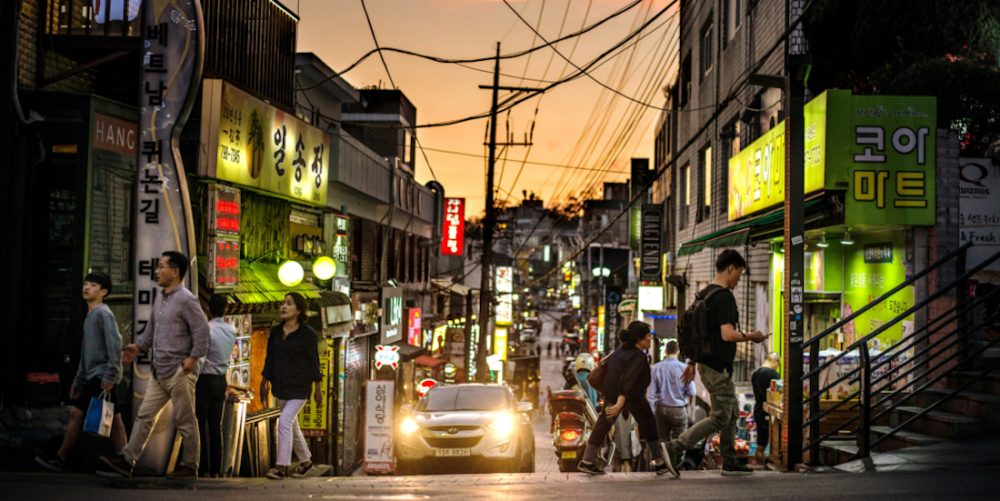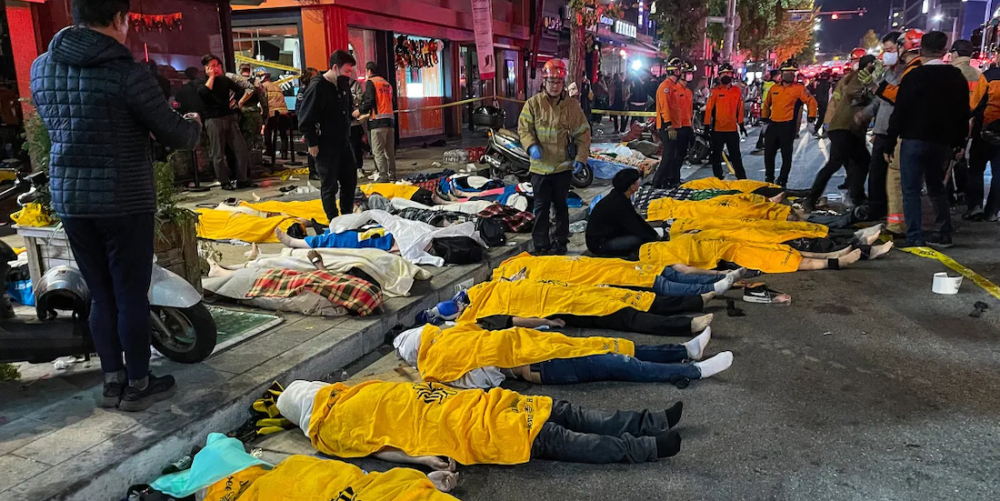
Policies in Seoul lag in offering lasting support for frontline responders

New York, N.Y. – The recent death of an unnamed firefighter who responded to the 2022 Itaewon disaster in South Korea has intensified calls to overhaul and strengthen the nation’s trauma care system. His passing highlights wider concerns over the country’s preparedness for social emergencies and the psychological toll on its first responders.
This tragedy, the 160th official fatality linked to the catastrophic crowd crush, renews criticism of the failure to provide adequate, long-term support for frontline workers and survivors grappling with psychological trauma. Despite a history of high-profile social disasters in recent decades, systemic support structures remain underdeveloped.
On Wednesday, police in Siheung, Gyeonggi Province, confirmed that the body of a firefighter, who had been missing for 10 days, was discovered without any signs of foul play. Authorities stated the 30-year-old appeared to have taken his own life. At the family’s request, an autopsy will not be conducted. He left behind notes expressing sorrow to loved ones, though no formal will was found.
The firefighter, who had served as a first responder since 2017, was among the teams dispatched to the Itaewon disaster site on October 29, 2022. That night, more than 150 people were killed when a massive crowd became packed into a narrow, sloped alley near the Hamilton Hotel in central Seoul during post-pandemic Halloween celebrations.

Insufficient Support and Growing Concerns
Following his service at the disaster, the firefighter developed depression and received nine psychiatric consultations through the National Fire Agency. However, mental health experts argue this level of intervention was likely insufficient. Psychiatric counselors note that while a dozen sessions might help individuals coping with acute stress, more severe trauma and depression, common after such catastrophic events, typically require between 24 and 52 sessions of sustained therapy.
“If you look at cases abroad, like 9/11, there is no fixed term for treating disaster survivors. Long-term, often indefinite support is essential,” said Dr. Kim Hyun-soo at Myongji Hospital. “National support for disaster trauma must be both extensive and sustained, especially for first responders.”
Government figures indicate that between October 2022 and September 2023, approximately 1,316 firefighters involved in the Itaewon emergency response received crisis counseling. Of those, 142 received in-depth sessions and hospital referrals. Despite these efforts, many first responders have reported limited follow-up care and a significant lack of adequate long-term support, leaving them to manage their psychological wounds largely on their own.

A Chorus of Voices Demands Reform
The firefighter’s death has deeply resonated with other survivors and the bereaved families of the Itaewon disaster. On Wednesday, a group representing the families mourned his passing and urged authorities to extend trauma care beyond the immediate victims to include first responders and even local merchants who provided assistance at the scene.
Activist groups have echoed these concerns, pointing to critical blind spots in South Korea’s disaster relief laws. “Korea’s laws only recognize ‘disaster victims’ in a narrow sense, leaving out the bereaved and traumatized rescuers, witnesses and supporters. There is no clear system to support their mental health and basic rights,” the civic group Life Safety Citizen Net said in a statement.
The group drew parallels to past tragedies, highlighting a persistent pattern of neglect. “After the Sewol Ferry disaster, a rescue diver died from trauma. A firefighter responding to Itaewon now lives apart from his family, working as a manual laborer with his trauma unhealed. The government must pass meaningful safety regulations and recognize the rights and dignity of all affected.”
Labor unions, including the Korean Government Employees’ Union, have demanded sweeping reforms. “This incident isn’t just one person’s tragedy; it’s a consequence of repeated disasters and the lack of meaningful trauma care for frontline workers. Reforming counseling, boosting mental health resources, improving working conditions and expanding staff are urgent national priorities,” the union stated.

International Practices vs. Korean Reality
Most countries with advanced disaster response systems acknowledge the profound risk of trauma for emergency workers and provide a wider range of care options compared to South Korea. Nations with experience in managing such disasters, such as the U.S. and Japan, have continually reformed their systems in response to major events.
After tragedies like 9/11 and various mass shootings, the U.S. dedicated significant resources to long-term mental health services for directly affected personnel. These programs include specialized treatment for post-traumatic stress disorder (PTSD), suicide prevention initiatives, and ongoing monitoring. Organizations like the National Fallen Firefighters Foundation provide crucial trauma care and family support for responders who develop lasting symptoms.
Neighboring Japan, while also facing challenges in providing long-term trauma care for first responders, has made strides in improving relief accommodation standards and disaster planning, which now includes more robust mental health support for personnel.
Despite its own history of devastating social disasters—including the Seongsu Bridge collapse in 1994, the Sampoong Department Store collapse in 1995, the Daegu subway fire in 2003, the Sewol ferry sinking in 2014, and the Itaewon disaster in 2022—South Korea continues to struggle with providing long-term mental health care for survivors and responders, compounded by persistent personnel shortages among frontline staff.

Acknowledgment and a Path Forward
The tragedy has prompted high-level acknowledgment of the systemic shortcomings. President Lee Jae Myung expressed his condolences for the death of the firefighter and promised to make efforts to extend support to victims, families, and first responders to help them overcome the trauma caused by high-profile disasters.
“Our society has not established a sufficient social safety net and psychological support system needed to fully face and heal from national and collective traumas,” Lee stated in a Facebook post on Wednesday. “To address such issues, our society needs to share the pain, recognize our collective responsibility with gravity and join forces for recovery.”
This incident serves as a stark reminder that the duties of first responders do not end when the immediate crisis is over; for many, the psychological battle is just beginning. The calls for change now echo throughout the country, demanding that the government build a system of care worthy of those who run toward danger.
Summary
The death of a South Korean firefighter, a first responder at the 2022 Itaewon disaster, has ignited urgent calls for comprehensive trauma care reform. Having developed depression after the event, his suicide highlights the insufficient psychological support provided to frontline workers. Experts, activists, and unions are demanding sustained, long-term mental health services, pointing to international models in the U.S. and Japan. This tragedy underscores a systemic failure in South Korea’s disaster response, prompting promises of change from government officials.